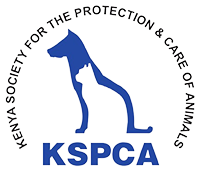Defined loosely as inflicting pain or suffering to any animal beyond necessity for normal discipline or care, it also includes the lack of provision of the five basic animal freedoms. There are many red flags that can be indicative of animal abuse. Whilst not every animal can have optimal conditions constantly, animal cruelty can be suspected if less than optimal conditions are an every-day or long-term occurrence. Things to look out for are:
- No food or water available. Many animals are fed only once a day, but fresh water should be constantly available. Animals that do not receive regular feeding may appear aggressive, or alternatively lethargic and listless.
- Lack of adequate shelter. No protection from the cold, rain or fully exposed to the sun all day.
- Lack of sanitation/ clean area. Faeces, dirt, or other offensive materials covering the animals living space.
- Poor health or unattended injuries. An animal with matted and dirty fur, or with obvious injuries, wounds, or sores. Underweight, flea-ridden, or other visible parasites. Infected eyes or ears left without treatment. Obviously limping or unable to move properly. In any physical distress with no veterinary treatment offered.
- Abandoned or left alone for long periods of time. Any animals on their own for extended periods of time in a house, yard, apartment, or empty building with no obvious signs of an owner. Non-stop loud barking or howling for several hours is usually an indication of anxiety or distress. Abandoning your animal for any reason is illegal.
- Animal tied, chained, or kept in a small cage with inadequate space to move, sit, sleep, stand up and turn.
- Chains or collars that are too tight or embedded into the animal’s neck.
- Overcrowding of animals irrespective of the size of the area. Even large areas can have too many animals in them.
- Signs of a breeding factory – many mothers and puppies in inadequate facilities or circumstances.
- Evidence of physical violence towards the animal or improper training methods and implements. This could also include evidence of animals being trained to or used for fighting. The animals might have old scars, missing body parts and badly healed wounds and display abnormal behaviour (overly aggressive, shy or fearful).
Animal cruelty and abuse happens in all economic and social classes, both in rural and urban areas. Many times abuse is passive – cases of neglect rather than intentional cruelty and can be an indication of social or mental issues of the owner, ignorance or lack of education.
Intentional cruelty, on the other hand, is strongly correlated with other crimes and forms of violence, often including violence against people. Severe psychological problems and personality disorders can also be underlying.
How can you help?
- Adopt an animal from a shelter. This means giving a good home to an abandoned or homeless animal and helps to stop puppy mills from profiting
- Donate time, money or equipment to shelters and animal welfare organisations to help investigate animal cruelty cases
- Educate your children and community to ensure proper handling and respect towards animals
- Look for cruelty-free animal products and humanely grown and slaughtered meat
- Report obvious cases (preferably with concrete evidence) to the correct authorities (local police station) to obtain a case number, after which the KSPCA can assist in rescuing, treating and rehoming the abused animals.
Article by: Dr. Laura Wessman
KSPCA Volunteer
Author: admin
8 Comments
-
-
P says:
Hello. Thank you for contacting us. Please get in touch with KSPCA Mombasa directly on 0733728356 or kspcamsa@gmail.com for further assistance.
-
If you need to report any issues or concerns to the KSPCA Mombasa branch, please feel free to contact them using the following details:
Location: Malindi Rd, Nyali, Mombasa, Kenya
Email: kspcamsa@gmail.com
Phone: +254 733 728356
-
-
Ritah says:
Hi I would like to report a case of stray dogs in Ngando area near Ngong racecourse that are violent and lacks attention and medical care….there have been cases of the dogs biting people both adults and kids.
-
Hello,
Please reach out to our office at 0733571125 for further assistance in this.
Thank you for contacting KSPCA. -
Hello, Thank you for notifying us about the dog’s situation. To ensure a prompt response and faster feedback, we kindly request that you use our dedicated emergency line at 0733 571125 to report this case.
-
-
Edward Kinyanjui says:
Mistreatmenyof Donkeys in Gatunyu in Gatanga Murang’a
-
Hello Edward,
Your report has been recorded, and we have it flagged for follow-up. For urgent matters, please don’t hesitate to reach out to our dedicated emergency line at 0733 571125.
-
Leave a Reply Cancel reply
Quick Links
SUBSCRIBE
Subscribe To Our Newsletter.
- Copyright © 2025 KSPCA. All rights reserved
- casereport@kspca.or.ke
- info@kspca.or.ke
- events@kspca.or.ke


Hi. I would like to report a case of animal abuse in Nyali area at a place called hideout. The owner is called salim.There are dogs and puppies that realy need attention at how cruely they are being mistreated. The puppies are being locked up with very bad treatment and are being abused. My heart broke for them and I am trying all means to rescue them. Please help as this is a case of emergency.
AMBER ALERT